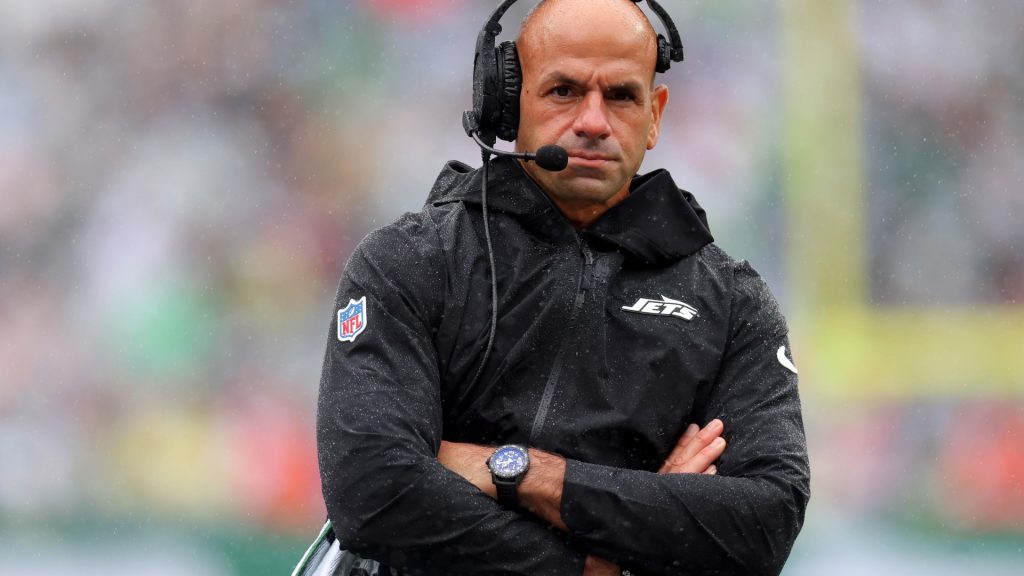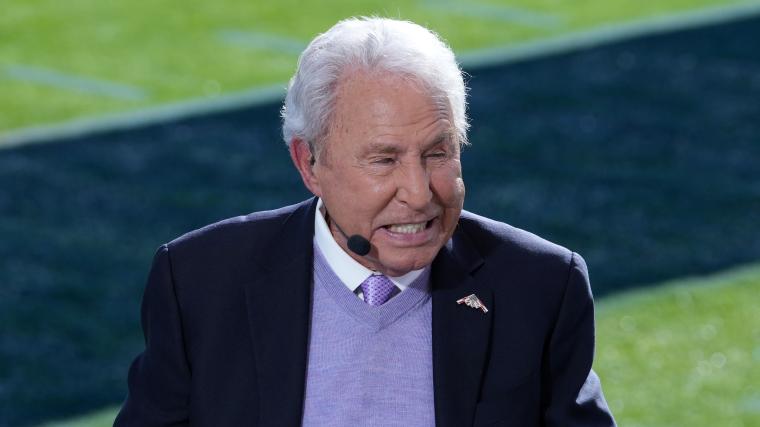In a shocking turn of events during the Quarterfinals of the College Football Playoff, the top four seeds, who had earned their coveted bye weeks by clinching their respective conference titles, all faced unexpected defeats. This dramatic twist left fans and analysts alike questioning the integrity of the playoff system.
Upsets Shake the CFP Landscape
Boise State, Arizona State, Oregon, and Georgia all fell short in their quest for a spot in the Semifinals. The lower-seeded teams emerged victorious in each matchup, demonstrating that anything can happen in college football. As Paul Finebaum observed these surprising outcomes, he highlighted a significant flaw in the expanded 12-team CFP format.
Finebaum’s Critique of the Bye System
“I think you have to remember that two of those bye teams really had no business getting byes, and that was the ultimate flaw in the system,” Finebaum stated. He pointed specifically to Arizona State and Boise State, arguing that these conference champions should have been forced to compete on the road during the first weekend of the playoffs. This would have changed the narrative entirely and likely prevented the early exits that have sparked such controversy.
Finebaum continued, “But Oregon is an outlier. It has been a problem for that program. It’s been such a great program, but in the big games — last year, of course, twice against Washington and this year, the second game against Ohio State, they really just could not get it done.” The pressure of the playoffs can be overwhelming, and for some programs, it seems to be a recurring theme.
The Case for Michigan
While much of the focus has been on the teams that faltered, Finebaum also took a moment to commend Michigan for their impressive performance. “That win against Ohio State did something to Ryan Day and his program that I can’t explain, but it may be the story of the CFP this year if Ohio State can win it all.” Michigan’s resilience and ability to rise to the occasion could very well shape the narrative of this playoff season.
The Controversy of Seeding
The seeding of the expanded CFP has been a hot topic among pundits and fans alike. Arizona State, for instance, was ranked No. 12 in the final CFP Rankings but managed to secure the No. 4 seed and a bye week. This discrepancy raises questions about the criteria used for seeding and whether the system truly reflects the best teams in college football. While Arizona State may not have been the primary issue in the quarterfinals, they serve as a prime example of the ongoing debate surrounding playoff fairness.
Is the 12-Team Playoff System Flawed?
The 12-team, expanded College Football Playoff may have been designed to enhance competition and excitement, but it’s clear that it still has its shortcomings. The recent quarterfinals have highlighted the need for a reevaluation of how teams are seeded and which squads receive bye weeks. As Finebaum and many others in the college football community have pointed out, there’s a strong argument for adjusting the criteria to ensure that the best teams are rewarded appropriately.
With the excitement of college football at an all-time high, fans are left wondering: How can we improve the playoff system to ensure that the best teams truly have a fair shot at the championship? The quest for perfection in the College Football Playoff continues, and it’s a journey that will require careful consideration and perhaps a few changes along the way.
Looking Ahead
As we move forward in this playoff season, the results of the quarterfinals serve as a reminder that anything can happen on the field. The thrill of college football lies in its unpredictability, but that doesn’t mean the system shouldn’t strive for fairness. Whether it’s through adjusting the seeding process or rethinking the bye week allocations, there’s plenty of room for improvement.
Ultimately, the goal is to create a playoff system that not only showcases the best talent in college football but also honors the hard work and dedication of the teams that earn their spots. The future of the College Football Playoff is bright, but it’s up to the decision-makers to ensure that it shines even brighter in the years to come. As fans, we can only hope that our beloved sport continues to evolve for the better, providing thrilling moments and unforgettable stories in the process.





























